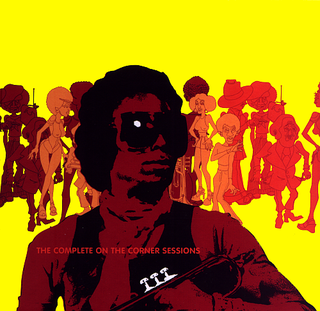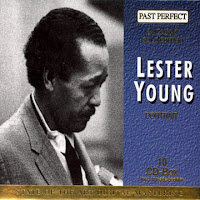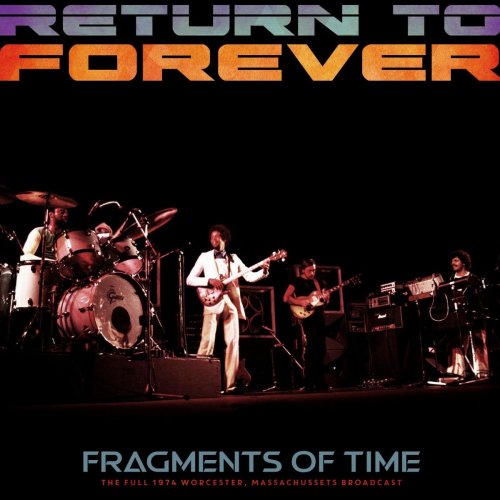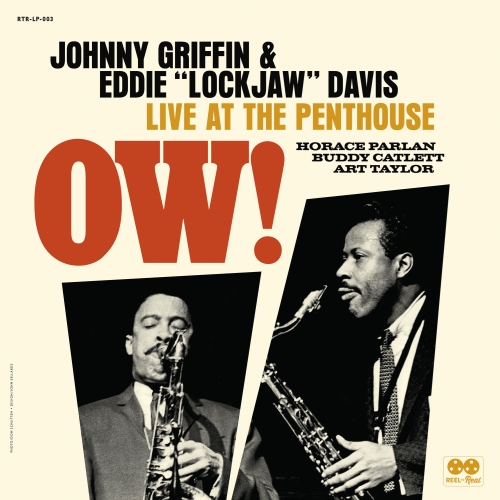Thelonious Monk – Kind Of Monk [10 CD, 2009/FLAC]
Most sets in this Kind Of series cluster around the mid-to-late 1950s for the artists who are topics of the sets. This one goes pretty heavy on the mid-to-late 1940s to early 1950s, with some mid-to-late 1950s and some material that was recorded as late as 1967. There is coherence to the composition of the set though. Nearly all of the tracks feature Monk as a leader. This is a departure from other sets in this series where it's a mix of leader and sideman.
CD 01 - Blue Monk
CD 02 - Brilliant Corners
CD 03 - The Gerry Mulligan Sessions
CD 04 - A Duke Eliington Songbook
CD 05 - Quartet & Octet In Europe
CD 06 - Live At The Five Spot Vol. 1
CD 07 - Live At The Five Spot Vol. 2
CD 08 - Epistrophy
CD 09 - Monk's Dream
CD 10 - Almost Solo
Miles Davis - Complete On The Corner Sessions [6 CD, 2007/FLAC]

This 6CD box set includes more than 6 hours of music. Twelve of these are previously unissued tracks. Another five tracks are previously unissued in full. They cover sixteen sessions from On the Corner, Big Fun, and Get Up With It until Davis's mid-seventies retirement. Miles is joined in these recordings by Chick Corea, Herbie Hancock, John McLaughlin, Jack DeJohnette, Billy Hart, and many others.
Nat King Cole - Hittin' the Ramp: The Early Years (1936-1943) [7 CD, 2019/FLAC]
By any measure, Resonance's 2019 box Hittin' the Ramp: The Early Years (1936-1943) is a monumental achievement in musical preservation. Over the course of seven CDs (or 10 LPs), Hittin' the Ramp chronicles the earliest recordings of Nat King Cole, rounding up every known track from the days prior to his time at Capitol Records. Those records for Capitol -- sessions that found him slowly transitioning from a swinging jazz pianist to smooth pop crooner -- were what brought Cole lasting fame, but the sides on Hittin' the Ramp lie at the foundation of his music. Playing with a trio comprised of guitarist Oscar Moore and usually Wesley Prince on bass (Johnny Miller took over his role toward the end of 1942), Cole essayed a sly, sophisticated spin on swing, one that relied on a standards songbook yet found plenty of space for blues, boogie, and originals. The standards hint at the refined vocal style Cole developed at Capitol, but the focus here isn't on singing, it's on Cole as a bandleader. During the eight years covered on this set, he worked in a variety of formats, beginning as the musical director for his older brother Eddie in 1936, then sharpening his skills as a leader with his trio. The group worked hard, supporting vocalists and hopping through transcription services as they cut the occasional session for fledgling labels. While many of these sides, particularly the ones recorded for Decca, have been reissued numerous times on fly-by-night imprints, the producers of Hittin' the Ramp took the effort to remaster these recordings so they gleam, then placed them in exacting context, augmented by notes by Will Friedwald. As history, the set is essential, but Hittin' the Ramp isn't a mere scholastic text. The music is jumping, lively, and alive, still brimming with wit and joy. As valuable as it is to have a way to trace the evolution of Cole as a stylist during these early years, it's simply a delight to have these recordings so thoughtfully and lovingly presented.
Charlie Parker - The Complete Dean Benedetti Recordings Of Charlie Parker [7 CD, 1990/FLAC]

Dean Benedetti was a saxophone player best known for his recordings of fellow saxophonist Charlie Parker. As a tenor saxophonist and band leader in California, Benedetti first heard a record of Parker in the Spring of 1945. Deeply influenced by the player, Benedetti began to study Parker, transcribing solos, building them into set pieces, and working bop into his own playing.
A two week engagement at LA's Hi-De-Ho Club in early 1947, done on discs, was the start of Benedetti's recordings. In 1948, Benedetti headed to New York with bandmate Jimmy Knepper, and recorded Charlie Parker on March 31, and July 7, both of these on Sears tape recorder.
While in New York, Benedetti began to use heroin. Unable to break into the New York music scene, he returned to his parents home in California in 1948. Trying to finance their way back home, Benedetti and Knepper attempt to sell drugs. However, Knepper took the drugs with him back to LA and abandoned Benedetti in New York.
Shortly after returning to California, Benedetti discovered he had a rare muscle disease, Myasthenia Gravis. The disease affected his playing, and he soon quit performing in public. The disease ruined his health, and in 1953 he moved in with his parents in Italy. He died on January 20, 1957, at the age of 34.
The recordings he made of Parker were something of a jazz legend, until in 1988 these tapes and acetate discs were sold by his brother, Rick Benedetti, to Mosaic Records. The Complete Dean Benedetti Recordings of Charlie Parker box was released by Mosaic Records in 1990.
VA - Astell&Kern - MQS Blue Note 75th Anniversary Collection [75 CD, 2014]
In celebration of Blue Note Records’ 75th Anniversary,
Astell&Kern has partnered with the legendary record label to offer
an exclusive, limited edition box set. Available now for a limited
time, the Astell&Kern Blue Note 75th Anniversary Box Set: Limited
Edition features 75 of Blue Note’s most essential albums, newly
remastered from analog to the hi-res MQS digital format.
The gorgeous collection spans Blue Note’s storied history, from Thelonious Monk's first sessions in 1947 to GRAMMY® Award-winning jazz phenomenon Gregory Porter’s Liquid Spirit.
The gorgeous collection spans Blue Note’s storied history, from Thelonious Monk's first sessions in 1947 to GRAMMY® Award-winning jazz phenomenon Gregory Porter’s Liquid Spirit.
Johnny Griffin & Eddie Lockjaw Davis - Ow! Live at the Penthouse 1962 (2021/FLAC)
Recorded live at The Penthouse Jazz Club in Seattle, Washington on May 30, 1962 and June 6, 1962
Official release of stellar, previously-unissued live recordings from jazz tenor saxophonists Johnny Griffin and Eddie Lockjaw Davis, captured at the Seattle Club Penthouse between May-June 1962.
Meticulous high-res transferred sound restoration from the original tapes.
Features interviews with saxophonist James Carter and drummer Kenny Washington, and includes newly commissioned essays by Ted Panken and Michael Weiss.
Nicknamed the Little Giant for his short stature and forceful playing, Johnny Griffin's career began in the early 1940s and continued until the month of his death in 2008. A pioneering figure in hard bop, Griffin recorded prolifically as a bandleader in addition to stints with pianist Thelonious Monk, drummer Art Blakey, in partnership with fellow tenor Eddie Lockjaw Davis and as a member of the Kenny Clarke/Francy Boland Big Band after he moved to Europe in the 1960s.Nicknamed the Little Giant for his short stature and forceful playing, Johnny Griffin's career began in the early 1940s and continued until the month of his death in 2008. A pioneering figure in hard bop, Griffin recorded prolifically as a bandleader in addition to stints with pianist Thelonious Monk, drummer Art Blakey, in partnership with fellow tenor Eddie Lockjaw Davis and as a member of the Kenny Clarke/Francy Boland Big Band after he moved to Europe in the 1960s.
Eddie Lockjaw Davis played with Cootie Williams, Lucky Millinder, Andy Kirk, Eddie Bonnemere, Louis Armstrong, and Count Basie, as well as leading his own bands and making many recordings as a leader. He played in the swing, bop, hard bop, Latin jazz, and soul jazz genres. Some of his recordings from the 1940s also could be classified as rhythm and blues.
Sonny Rollins - The Complete RCA Victor Recordings [6 CD, 1997/FLAC]
This six-CD set has all of tenor saxophonist Sonny Rollins' recordings for RCA, including the complete contents of The Bridge, What's New, Our Man In Jazz, Sonny Meets Hawk, Now's the Time and The Standard Sonny Rollins, the three selections originally included in the sampler 3 for Jazz, and 11 alternate takes only previously released on the French album The Alternative Rollins. Less known than Rollins' earlier Prestige and Riverside records and slightly later Impulse albums, his output for RCA was recorded right after the great tenor came back from an extended sabbatical. The music on The Bridge (which co-stars guitarist Jim Hall) is the most famous of these dates. Rollins became increasingly interested in the avant-garde during the era, and he used two of Ornette Coleman's sidemen (trumpeter Don Cherry and drummer Billy Higgins) in his group for a period. On Sonny Meets Hawk, Rollins challenged his idol Coleman Hawkins by playing as outside as possible (Hawkins responded well). Other musicians heard on the recordings include bassists Bob Cranshaw, Ron Carter and Henry Grimes, drummers Ben Riley and Mickey Roker, pianists Paul Bley and Herbie Hancock and (on a couple of numbers) cornetist Thad Jones. However, Rollins is the main star throughout the adventurous and sometimes eccentric performances, coming up with many remarkable ideas, often rollicking with a pianoless rhythm section and in two cases taking duets with the congas of Candido. Serious Sonny Rollins collectors will have to have this valuable set, although since most of the selections have also been reissued on individual CDs, more casual jazz fans may be satisfied with one or two of the smaller reissues.
Lee Morgan - Live At The Lighthouse (1970) [3 CD, 1996/FLAC]
This three-CD set from Blue Note expands trumpeter Lee Morgan's original two-LP set from four selections to 12. Morgan's music had become much more modal by this time, heavily influenced by John Coltrane, although some of the previously unissued numbers (including a remake of his popular "The Sidewinder") are a bit more straight-ahead. Bennie Maupin (on tenor, bass clarinet, and flute) is in peak form and the rhythm section (pianist Harold Mabern, bassist Jymie Merritt, and drummer Mickey Roker) is alert and creative. All of the songs are group originals, including two by Morgan (on his "Speedball," Jack DeJohnette sits in on drums), five by Maupin, three by Mabern, and two from Merritt. Stimulating and frequently exciting music from late in Lee Morgan's short life.
Subscribe to:
Comments (Atom)

:format(jpeg):mode_rgb():quality(90)/discogs-images/R-2169212-1303204564.jpeg.jpg)




:format(jpeg):mode_rgb():quality(40)/discogs-images/R-7279493-1440093202-7335.jpeg.jpg)